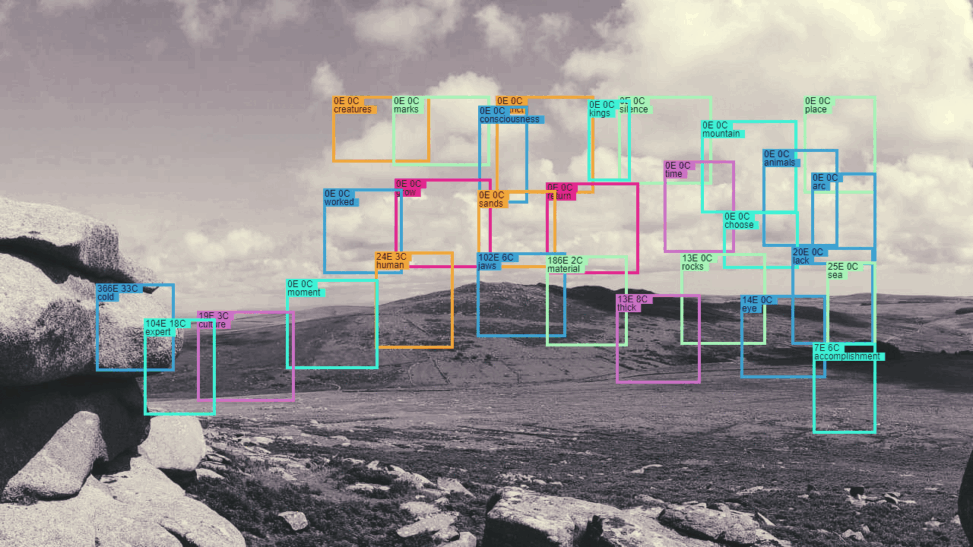Algorithmic Light was a project conducted over the course of summer 2023, asking how technologies of artificial intelligence (defined broadly to encompass many diverse systems, including machine vision) can be deployed creatively, and critically, for investigating, articulating, and re-imagining an ecologically transforming world. It was supported by a research priming grant from the University of York.
A recurrent critique against AI concerns the immense toll in energy, water, and highly refined materials necessary for sustaining the intensive computing demands of the latest systems. Such concerns have also been levelled against claims that AI will be critical in combating future Earthly challenges. Nevertheless, the ostensibly singular demands of large-scale AI infrastructures might be compared to those sustaining the digital world more generally, encompassing even those systems involved in the essential task of monitoring, mapping, and modelling a changing planet. The latest modes of generative AI are prompting renewed interest in perennial debates concerning the relationship between human and machinic creativity, but these have paid limited attention to how the more-than-human status of the latter might alter our conceptual understandings of more-than-human environments, broadly construed.
Algorithmic Light utilised a combination of sensory, algorithmic, and generative technologies, reworking both text and image, to examine how we might thus articulate richer, more provocative outlooks and sensibilities towards a ‘natural’ world that is being profoundly affected by sociotechnical activities to an irreversible degree. In so doing, the project gestured towards how contemporary modes of ‘AI-driven’ creativity can operate in ways that are not, as claimed, inextricably oppositional to wider material ecologies, but generative of alternate practices that can better narrate the highly complex, contested domain of human-technical-environmental relations. In the spirit of Philip Agre’s original critical technical practices concerning AI, Algorithmic Light sought to raise points of reflection and enquiry not so much through any apparent “success” compared to established processes, but by encouraging dialogues around the frictions, surprises, ad outright aporia yielded by its assembly and functioning, entangling multiple registers of thought and practice.
The outcomes of Algorithmic Light have been published within the online journal The Digital Review, as part of the “AI-Augmented Creativity” issue. It can be viewed at this link here.
